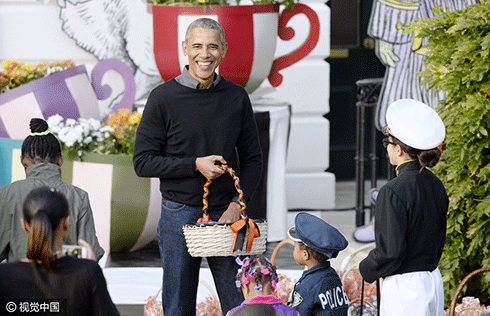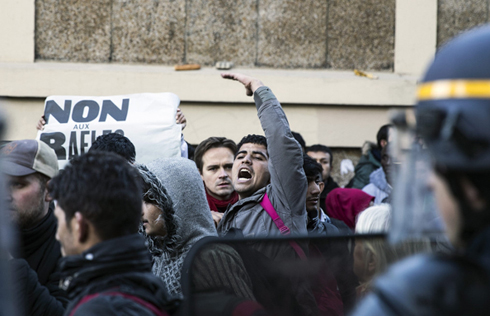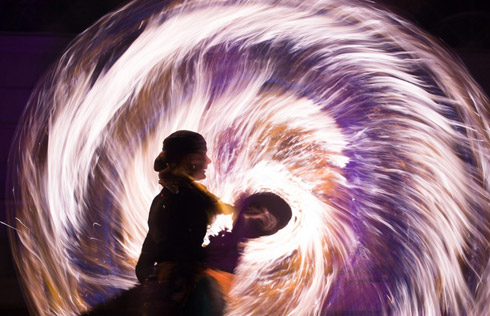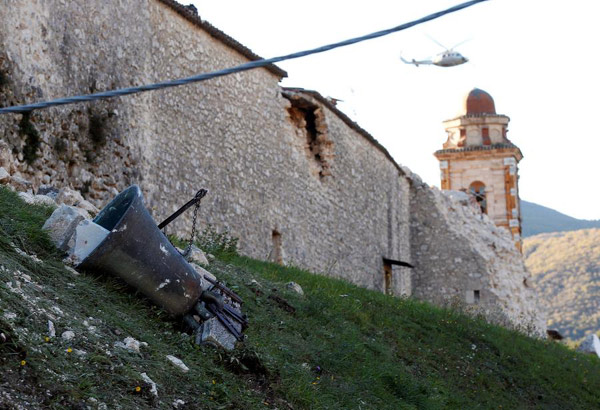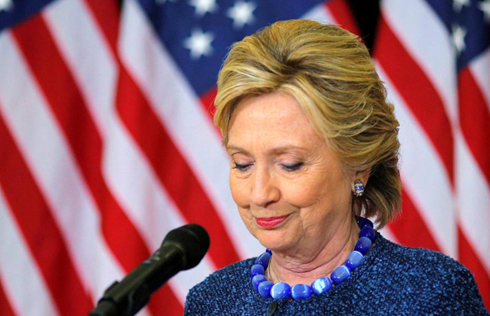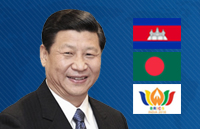Campaign rhetoric sets scary scenarios
Donald Trump could draw the United States into nuclear war, Hillary Clinton warns. Clinton would plunge the country into a constitutional crisis, he says.
With six days until Election Day, each candidate is aggressively casting the other as a catastrophic choice for the White House. Making a case about their own qualifications and vision has become a secondary priority.
It's an ugly conclusion to a contest featuring two of the most unpopular presidential candidates in modern American politics.
The sexual assault accusations that have trailed Trump in the race's closing weeks and a new Federal Bureau of Investigation probe of Clinton's email use could reinforce the public's negative perceptions, leaving the candidates to argue who is the better of two unappealing options.
The revelation by FBI Director James Comey that the agency was investigating emails found on a computer belonging to Anthony Weiner, the estranged husband of close Clinton aide Huma Abedin, jolted the presidential race on Friday.
The FBI has not publicly provided information about what the files contain or how they may relate to the earlier investigation into Clinton's use of a private email system while she was secretary of state.
During a rally at Kent State University on Monday, Clinton said many are questioning "why in the world the FBI would decide to jump into an election with no evidence of wrongdoing with just days to go. There is no case," she said.
On Tuesday, during a rally in Florida in which she criticized Trump, Clinton said: "I would rather be here talking about nearly anything else. But I can't just talk about all of the good things we want to do."
On Monday, she warned against giving Trump the authority to order a nuclear attack, bringing along a former nuclear launch officer to bolster her point.
"Imagine his advisers afraid to tell him what he doesn't want to hear, racing against his legendarily short attention span to lay out life-and-death choices too complex to be reduced to a single tweet," Clinton said. "Then imagine him plunging us into a war because somebody got under his very thin skin."
After spending much of the summer and fall tearing Trump down, Clinton had planned to close the campaign on a more positive note. She talked about giving Americans something to vote for, not just against. And when public opinion polls showed her with solid leads in most battleground states, she started talking about healing divisions and unifying the country.
But her advisers say they saw polls tighten even before the FBI launched its new email investigation. The campaign now believes she needs to make a last push to define Trump as unacceptable to voters.
On Tuesday, Clinton focused on Trump's aggressive comments about women, calling him a "bully". This time she brought with her former Miss Universe Alicia Machado. Trump criticized Machado for gaining weight after winning the 1996 contest.
Trump's campaign rhetoric has depicted a crumbling nation, and he has not hesitated to go negative on Clinton. He routinely calls her "Crooked Hillary" and "the most corrupt person ever to run for the White House".
Trump stepped up his broadsides after he recently received a pair of potentially potent political gifts: the projected "Obamacare" premium-rate increase and Comey's letter about the emails.
Trump's campaign sees the latter as an opportunity to reinforce questions about Clinton's trustworthiness and remind voters that sending Clinton to the White House could lead to the return of the scandals that trailed Bill Clinton's presidency in the 1990s.
"She would be under protracted criminal investigation and probably a criminal trial," Trump said during a rally in Michigan on Monday. "So we'd have a criminal trial of a sitting president."
President Barack Obama went to Ohio on Tuesday to campaign for Clinton and avoided mentioning the email probe.
"There's noise and there's distractions," Obama said at a rally near Columbus. "I want you to tune all of that out."
The White House has sought to distance itself from top Democrats' attacks on Comey. Obama's press secretary, Josh Earnest, said repeatedly on Monday that he would "neither defend nor criticize" Comey's decision.
He called Comey a "man of integrity" but said his letter informing Congress of the emails "had the opposite of the intended effect". Obama does not believe Comey is trying to influence the election, Earnest said — a charge first leveled by Senate Democratic Leader Harry Reid on Sunday.
Trump campaigned on Tuesday in Pennsylvania, a state in which he has directed an abundance of time and resources. He and running mate Mike Pence delivered their loudest takedown yet of Obama's healthcare law.
Though barely mentioning Clinton's name, Trump somberly warned that electing Clinton would "destroy American healthcare forever".




